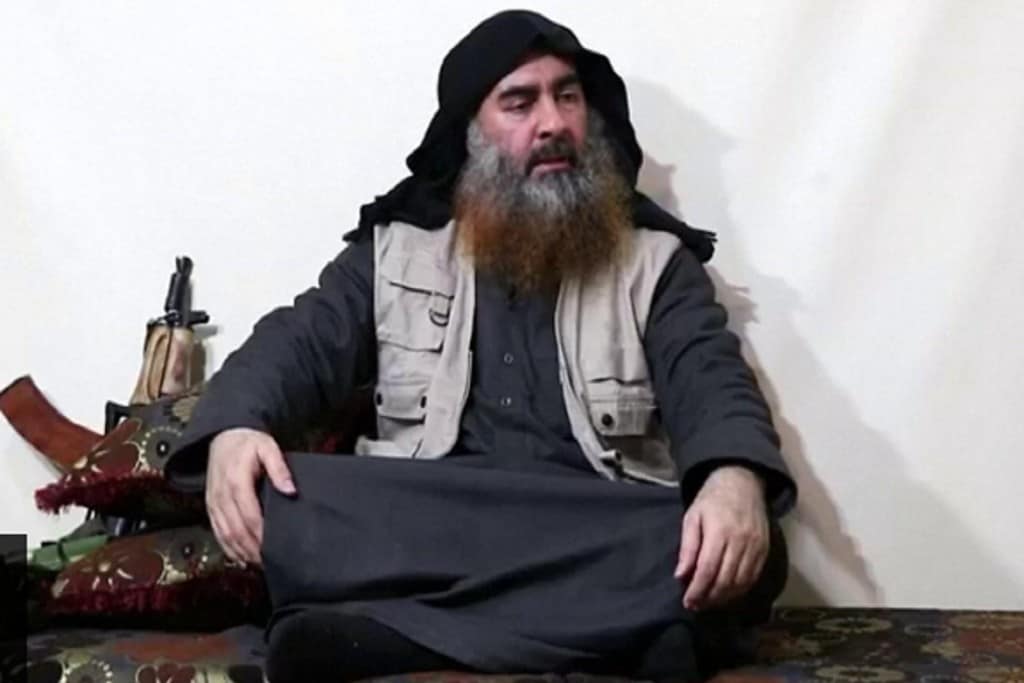By Denis Korkodinov
On August 8, 2019, the leader of the terrorist organization “Islamic state”, Abu Bakr al-Baghdadi, named a successor, who allegedly is Abdullah Kardash, a native of the city of Tala Afar, inhabited mainly by Turkomans and located in the northwestern of Iraq.
The reason for announcing a successor was the health deterioration of Abu Bakr who, according to intelligence sources, suffered serious injuries of the musculoskeletal system on December 15, 2018, during the Kurds attack on the city of Khadzhin, which is the temporary capital of ISIS. However, the appointment of a the new leader could trigger a wave of terror in the Middle East and North Africa.
At the same time, it is worth noting that Abdullah Kardash can head exclusively the “Islamic State”, meanwhile while Abu Bakr al-Baghdadi retains the status of the caliph.
Representatives of the Muslim community deny the status of the caliph to the leader of the Islamic State, arguing that the Islamic caliphate was abolished by Mustafa Kemal Ataturk in 1924. Already at the beginning of the 20th century, the caliph became a purely nominal figure, lacking authority in the international community. In fact, the caliph was subordinate to the victorious countries of the First World War, and, above all, to UK and France, whose armed forces controlled Istanbul.
After their pressure on October 17, 1922, the only caliph in the history of the Ottoman Empire who did not simultaneously hold the title of Sultan, Abdul-Majid II emigrated from Istanbul to the island of Malta. In this case, special attention should be paid to the fact that Abdul-Majid II renounced to the status of the caliph not only for himself, but for all representatives of future generations, on the basis of which no one in the Muslim world was entitled to call himself the successor of the caliph.
Mustafa Kemal Atatürk was facing a difficult choice during the abolition of the caliphate. In Turkey there was a rather strong Islamist lobby, which asked the father of the Turkish nation to maintain the caliphate, but at the same time separating it from the state. Moreover, the influence on the world Muslim community, which at that time counted more than 15 million people, was a key argument for maintaining the caliphate unchanged. However, Kemel Atatürk did not intend to bind himself with religious bonds, believing that Turkey should become exclusively a secular state.
The Islamist opposition, formed as a result of the abolition of the caliphate, disagreeing with Ataturk’s decision, has repeatedly made attempts to revive the caliphate. So, in 1919, the Caliphate Movement was formed on the territory of India, which built its activities on the basis of opposition to British rule. The key follower and ideologist of the Indian caliphate was Mahatma Gandhi. Among other things, in the 1920s in Syria, the caliphate was proclaimed by emir Saeed al-Jazayri. In addition, the Muslim Brotherhood movement in Egypt, formed in 1928, also took the initiative to revive the Islamic State, and in 2006, Osama Bin Laden proclaimed Baghdad “the home of the caliphate.”
But the most serious attempt to form an “Islamic state” was made by Ibrahim Awad Ibrahim al-Bagri, who after proclaiminghimself supreme caliph took the name of Abu Bakr al-Baghdadi.
It is worth noting that in taking the name of Abu Bakr, Ibrahim Awad Ibrahim al-Bagri wanted to emphasize his connection with the first successor of the Prophet Muhammad Abu Bakr al-Saddik.
Meanwhile, on September 20, 2014, about 120 religious figures belonging to the Sunni Islamic movement criticized Abu Bakr al-Baghdadi for “misinterpreting Islamic norms, resorting to aggression instead of compassion for others.” However, these words were ignored by the leader of the Islamic State, whose power at that time was extended to over 90,000 square kilometers.
The real name of Abdullah Kardash, the potential new leader of ISIS, is Amir Muhammad Saeed al-Mawla. He was born in 1976. He has a bachelor’s degree in Islamic Sciences. He has a son, Muhammad Said, as well a brother, Adil Muhammad Said, who currently resides in Turkey. For information about the whereabouts of Abdullah Kardash, the United States guarantees a reward of up to $ 5 million.
Probably in the very near future, Abdullah Karash will be able to officially head the Islamic State. In this case, the experts note that the reshuffle in the leadership of ISIS can cause an escalation of conflicts in the Middle East and North Africa, since some Islamic groups that are members of the Islamic State will not recognize Abdullah Kardash as their leader. In addition, after the so-called “inauguration” of his leadership, Abdullah Kardash may announce a new wave of terror.
(The views expressed in this article belong only to the author and do not necessarily reflect the views of World Geostrategic Insights)







